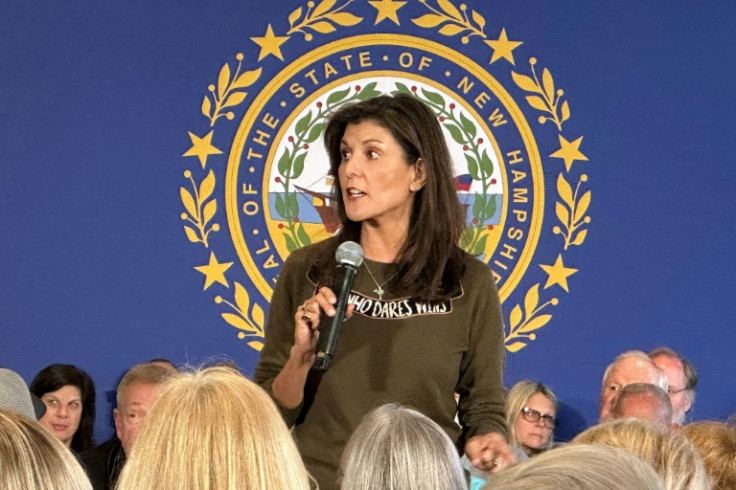
KEY POINTS
- Nikki Haley cited increasing threats as she sought Secret Service protection
- Her home in South Carolina was the target of two swatting incidents in recent months
- She indicated last week that her campaign was increasing security and that threats are part of running for public life
Nikki Haley has sought Secret Service protection due to increasing threats she is facing as the sole GOP presidential challenger to former President Donald Trump, she told the Wall Street Journal on Monday.
The former South Carolina governor and United Nations ambassador told the Journal that she's recently "had multiple issues."
"It's not going to stop me from doing what I need to do," she said.
Haley's home in South Carolina was the target of two swatting incidents in recent months. Police were falsely directed to her home on suspicion of a crime in both cases, and in one of those cases, her parents were home with their caregiver when officers arrived "with guns drawn pointing at my parents," he said on NBC's "Meet the Press."
"I will tell you that the last thing you want is to see multiple law enforcement officials with guns drawn pointing at my parents and thinking that something happened," Haley said during the interview. "It was an awful situation."
Nikki Haley is the final obstacle standing in the way of Trump and his Republican presidential nomination, and she refuses to concede even after two losses in Iowa and New Hampshire.
Haley indicated last week that her campaign was increasing security and said threats are part of running for public life.
"When you do something like this, you get threats. It's just a reality," Haley said at a campaign stop last week.
"Part of running for public life is that you're going to deal with the threats that are there. That's not going to deter me. Does it mean we have to put a few more bodies around us? Yes, that's fine," she said while in Columbia, South Carolina.
The Secret Service has provisions to protect people who are identified by the Department of Homeland Security as major presidential or vice presidential candidates. The protection is granted after authorization from the Secretary of Homeland Security after consultation with a congressional advisory committee and is provided 120 days before the general presidential election. However, Homeland Security secretaries have made exceptions in the past and made room for early security.







